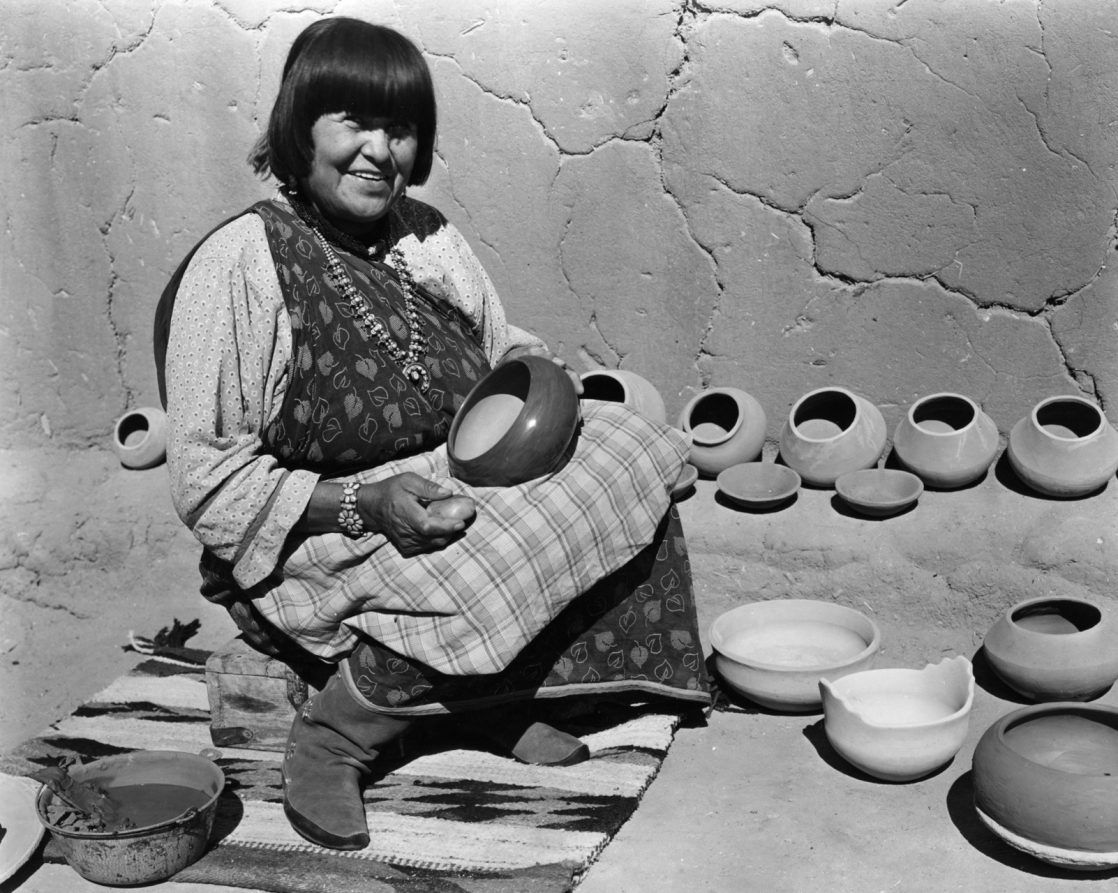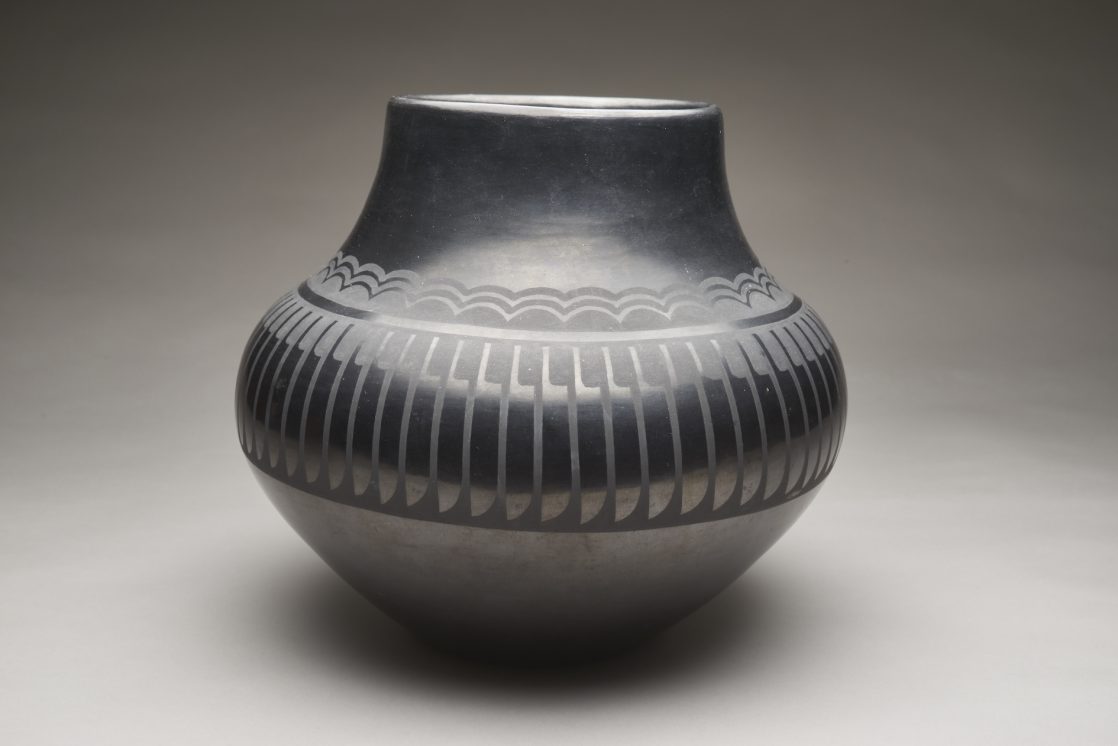Welcome to Ceramic Review
Ceramic Review is the magazine for contemporary and historical ceramics, ceramic art and pottery.
Ceramic Review Issue 334
July/August 2025
Ceramic Review is the magazine for contemporary and historical ceramics, ceramic art and pottery.
July/August 2025
Katie Lee-Koven, executive director and chief curator at The Nora Eccles Harrison Museum of Art at Utah State University, chooses a piece by María Montoya Martinez

María Montoya Martinez, one of the most influential American Indian potters in the world, had a definitive impact on the development of ceramics in the American West. Of Tewa heritage, Martinez was born in the San Ildefonso Pueblo within the Rio Grande Valley, New Mexico. Around age 11, she learned pottery techniques by watching her aunt and grandmother make clay dishes.
The black-on-black tradition that Martinez and her husband Julian Martinez developed was born out of an attempt to revive a different technique seen in a shard of clay discovered by archaeologist Dr Edgar Lee Hewett in the Rio Grande Valley in 1908. Hewett sought out Martinez and asked her to recreate the shard's finish. This led to the black-on-black work that is today synonymous with Pueblo pottery. The tradition has existed for about 100 years.

Producing an object like this Jar with Cloud and Feather Decoration was complex and could require weeks of work. The couple’s distinctive style combined glossy and matte surfaces.
First, they gathered clay and volcanic ash from the land surrounding the Pueblo. Mixing these materials created the basic clay body, which was shaped with traditional gourd tools. The firing process determined the colouring of the clay. Once dried, the surface was brought to a high polish with a river stone.
In 1952, Nora Eccles Treadwell, ceramicist and collector of ceramics, and her first husband, the photographer/filmmaker Walt Treadwell, produced a documentary film about Martinez’s making process. In the film, Eccles speaks with Martinez, asking questions and observing, it also features finished pieces by Martinez that are likely featured in the museum’s collection. The Nora Eccles Harrison Museum of Art was established in 1984 with a major gift from Eccles’ estate that included a donation of about 400 pots from her collection.